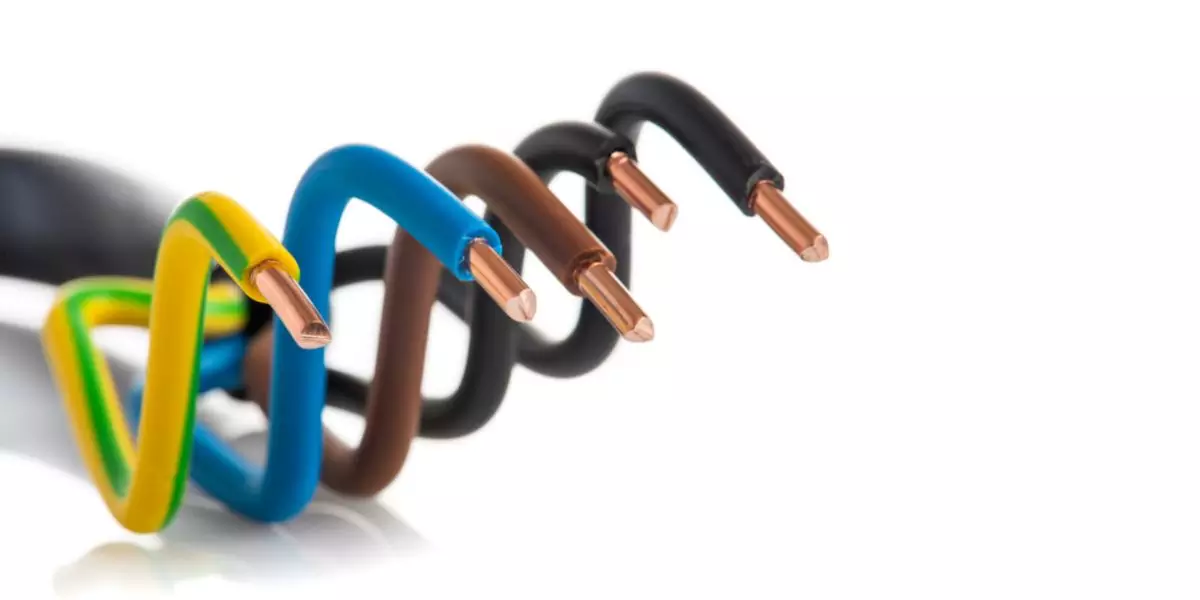Do you ever wonder why your ground wire is hot?
It may seem contradictory, as the purpose of a ground wire is to provide safety and prevent electrical shocks. However, there are certain circumstances that can cause the ground wire to overheat.
In this article, we will explore the common causes of ground wire overheating, the dangers it presents, and the solutions to address this issue.
So, let’s dive into the world of ground wire heating and shed some light on this perplexing phenomenon.
Common Causes of Ground Wire Overheating
If you notice that the ground wire in your electrical system is overheating, it is important to understand the causes behind it.
Seeking professional assistance is highly recommended in such situations as they have the expertise to identify and resolve the underlying issues.
Taking prompt action to prevent further damage is crucial to ensure the safety of your electrical system and prevent potential hazards.
Causes of Overheating
When your ground wire is hot, it can be caused by various factors that lead to overheating. One of the main causes is insulation failure. Over time, the insulation around the wire may become damaged or worn out, exposing the wire to the surrounding environment. This can result in electrical current leakage and cause the wire to become hot.
To prevent accidents and ensure the safe operation of your electrical system, regular maintenance is essential. This includes inspecting the wires for any signs of wear or damage and promptly replacing any faulty insulation.
Additionally, proper installation and grounding techniques are crucial to avoid overheating. Ensuring that the ground wire is securely connected and properly sized for the electrical load can help reduce the risk of overheating and potential hazards.
Professional Assistance Recommended
For optimal safety and prevention of potential hazards, it’s advisable to seek professional assistance when dealing with issues related to overheating in your electrical system. While there are troubleshooting tips and DIY solutions available, it’s important to remember that working with electricity can be dangerous.
Hiring a professional who is trained and experienced in electrical systems ensures that the job is done correctly and safely.
Warning signs of an overheating electrical system include flickering lights, buzzing sounds, and burning odors. These signs should not be ignored, as they could indicate a serious problem that requires immediate attention. Attempting to fix the issue yourself without the necessary knowledge and expertise can lead to further damage or even electrical fires.
Preventing Further Damage
To prevent any additional harm, it’s crucial for you to promptly address the warning signs of an overheating electrical system.
Ignoring these signs can lead to serious consequences, such as electrical fires or damage to your appliances.
Luckily, there are troubleshooting tips and preventive measures you can take to avoid such risks.
One common sign of an overheating electrical system is a hot ground wire. If you notice this, it’s important to turn off the power immediately and call a licensed electrician for assistance.
Additionally, you should regularly inspect your electrical system for any signs of wear or damage, such as frayed wires or loose connections.
Taking these preventive measures can help ensure the safety of your home and protect you from potential electrical hazards.
Dangers and Consequences of Hot Ground Wire
When dealing with a hot ground wire, it’s important to be aware of the potential dangers and consequences that can arise.
Not only can it cause damage to your electrical equipment, but it also poses potential safety hazards to you and your household.
In such situations, it’s crucial to seek professional assistance to ensure the issue is addressed safely and effectively.
Electrical Equipment Damage
The main reason electrical equipment gets damaged is because of power surges. Power surges are sudden increases in voltage that can occur due to various reasons such as lightning strikes, faulty wiring, or problems with the power grid.
When a power surge happens, it can cause serious damage to your electrical equipment, leading to equipment failure, electrical system malfunction, and even fires. To prevent these incidents, it is crucial to use surge protectors and install a grounding system for your home or office.
A grounding system helps to divert excess electrical energy safely into the ground, protecting your equipment and preventing fires. Additionally, regular maintenance and inspection of your electrical system can help identify potential issues and prevent equipment failure.
| Preventing Fires | Electrical System Malfunction |
|---|---|
| Use surge protectors | Regular maintenance |
| Install grounding system | Inspect electrical system |
| Identify potential issues |
Potential Safety Hazards
Potential safety hazards can arise from faulty electrical equipment or inadequate maintenance. It is important to be aware of the potential dangers that can result from these issues.
Faulty electrical equipment can lead to electrical fires, which can cause extensive damage to your property and put your safety at risk. To prevent such incidents, it is crucial to take proper safety precautions.
Regularly inspect your electrical equipment for any signs of damage or wear and tear. Ensure that all electrical outlets and wiring are in good condition and not overloaded. Additionally, make sure to hire a licensed electrician to perform any necessary repairs or maintenance tasks.
Importance of Professional Assistance
Now that you understand the potential safety hazards of not properly addressing ground wire hot issues, it is crucial to emphasize the importance of seeking professional assistance.
When it comes to electrical safety, preventing accidents should be your top priority. Professional electricians have the expertise and knowledge to handle complex electrical systems, ensuring that the necessary safety measures are in place.
They can accurately diagnose and fix ground wire hot problems, reducing the risk of electrical fires, shocks, or other accidents. By relying on their professional guidance, you can rest assured that your home or workplace is safe and secure.
Addressing Ground Wire Heating: Troubleshooting and Solutions
One possible solution for troubleshooting and addressing ground wire heating is to check for loose connections. Loose connections can cause resistance and lead to overheating of the ground wire. In addition to loose connections, there are other troubleshooting techniques that can help identify and resolve ground wire heating issues. Insulation problems, such as damaged or worn-out insulation, can cause the ground wire to heat up. It is important to inspect the insulation for any signs of damage and replace it if necessary. Another potential cause of ground wire heating is improper electrical grounding. Ensuring proper grounding and addressing any faults or issues in the grounding system can help prevent ground wire heating.
To give you a better understanding, here is a visual representation of the troubleshooting techniques, insulation problems, and electrical grounding:
| Troubleshooting Techniques | Insulation Problems | Electrical Grounding |
|---|---|---|
| Check for loose connections | Damaged or worn-out insulation | Ensure proper grounding |
| Inspect for signs of damage | Replace damaged insulation | Address faults in grounding system |
| Verify proper connections | Improve insulation quality | Maintain a solid ground connection |
Lightning Strikes and Ground Wire Heating: Understanding the Connection
To better understand the connection between lightning strikes and the heating of your ground wire, it’s important to consider the role that proper grounding plays in dissipating the electrical energy safely.
Lightning protection is crucial to ensure the safety of your electrical system. When lightning strikes nearby, it generates an enormous amount of elect
Frequently Asked Questions
Can a ground wire get hot on its own?
A ground wire may get hot if there is excessive current flowing through it due to a fault or improper grounding. This can be caused by factors such as a short circuit, leakage, or a bad connection. It is crucial to have a qualified electrician inspect and rectify the problem to ensure the safety of your electrical system.
What is the purpose of a ground wire?
The ground wire is an essential part of an electrical system. Its primary purpose is to provide a path of least resistance for electric current to flow in the event of a fault. This helps prevent electric shocks, fires, and damage to electrical components.
How does current flow through the ground wire?
When there is a fault in an electrical system, such as a short circuit or insulation breakdown, excess current can flow through the ground wire. The ground wire is connected to the ground or earth, which offers low resistance to current flow, directing it away from electrical components and minimizing potential harm.
Can a ground wire on an electric fence get hot?
Yes, a ground wire on an electric fence can get hot under certain circumstances. This usually occurs when there is a fault or poor connection between the fence charger and the fence. Excessive current flow through the ground wire can cause it to heat up, potentially leading to malfunctions or safety hazards.
What should I do if my ground wire gets hot?
If you notice that your ground wire is hot, it is crucial to address the issue promptly to prevent further complications. Firstly, turn off the power to the affected circuit and ensure your safety. Contact a qualified electrician to inspect the system, identify the cause of the hot ground wire, and make the necessary repairs.
Can a ground wire cause electrocution?
A hot ground wire has the potential to cause electric shocks and electrocution. If the ground wire is carrying excessive current due to a fault or improper grounding, it can pose a significant safety risk. It is vital to take immediate action and seek professional assistance to rectify the issue and ensure your safety
rical energy. Without proper grounding, this energy can travel through your electrical system, causing damage and potential hazards.
Electrical grounding provides a path of least resistance for the lightning’s energy to flow safely into the ground, reducing the risk of damage to your equipment and the potential for electrical fires. By allowing the electrical energy to be safely dissipated, grounding helps prevent excessive heating of your ground wire, ensuring electrical safety in your home or building.
Conclusion
In conclusion, when it comes to a hot ground wire, prevention is key. Remember, ‘an ounce of prevention is worth a pound of cure.’
By properly maintaining your electrical system, addressing any issues promptly, and ensuring proper grounding, you can avoid the dangers and consequences of a hot ground wire.
Don’t ignore the warning signs, as this could lead to serious electrical problems. Stay vigilant and keep your electrical system in check to keep your home safe and secure.







